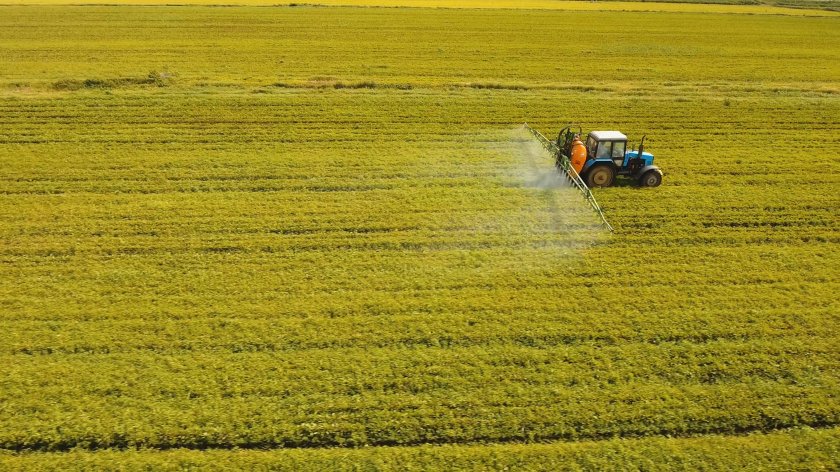
Defra has said it is 'committed' to addressing concerns over the potential loss of parallel imports and seed treatments by ensuring new measures are in place soon.
The farming industry is seeking to address two crucial issues simultaneously; the loss of access to certain seed treatments and the withdrawal of permits for the import of parallel plant protection products (PPPs).
Currently, post-Brexit arrangements in place to access both parallel imports and seed treatments are due to end this year.
The NFU, along with a number of farming industry organisations, has been calling for access to continue.
The union has highlighted the impact that the loss of availability and choice of PPPs would have on cropping and production across a range of farming sectors.
This week, Farming Minister Mark Spencer confirmed that Defra was "preparing to lay secondary legislation in autumn" to "extend transitional arrangements for the import of treated seeds from the EU and EEA and will also include provisions to address the important issue of parallel imports."
Mr Spencer added that the proposal "is not a permanent solution, but it should provide an immediate response to some of the economic pressures that we know growers are facing."
For parallel trade, it is expected the proposed arrangements would allow those holding valid parallel trade permits at the end of the transition period to apply for them to be reinstated on a temporary basis.
As it stands, only seed treatments specifically approved for use in Great Britain will be able to be imported, marketed or used after the cut-off. The NFU warned that this has left some sectors facing 'a cliff edge'.
For example, there are currently no bird-repellent, fungicide or insecticide seed treatments licensed for application on maize in the UK, and only an insecticide treatment available for fodder beet.
At an industry roundtable in July 2023, Mr Spencer and other Defra officials outlined options to allow continued access to seed treated in the EU when post-Brexit arrangements end on 1 January 2024.
In a letter afterwards, the farming minister wrote: "I am personally committed to finding both long-term and short-term solutions to these problems.
"This includes exploring the use of legislative powers available to Ministers to ensure the availability of products. To be clear, it is my firm intention to have a solution in place for the next growing season."
An NFU reply highlighted the importance of an early resolution that allows farmers and growers to have the confidence to invest in next year’s cropping.
It had rallied the industry to raise awareness of the potential impacts of losing access to key seed treatments, including knock-ons for the animal feed and anaerobic digestion sectors, should maize crops be affected.
A number of vegetable crops and a small number of cereals would also be impacted, the NFU warned, highlighting the findings of a NIAB survey suggesting 60% of farmers would grow less maize in the absence of seed treatments, with nearly 20% potentially stopping completely.
The NFU said: "The NFU will be holding the farming minister to this latest commitment and will continue to push for a long term solution to the issue."
